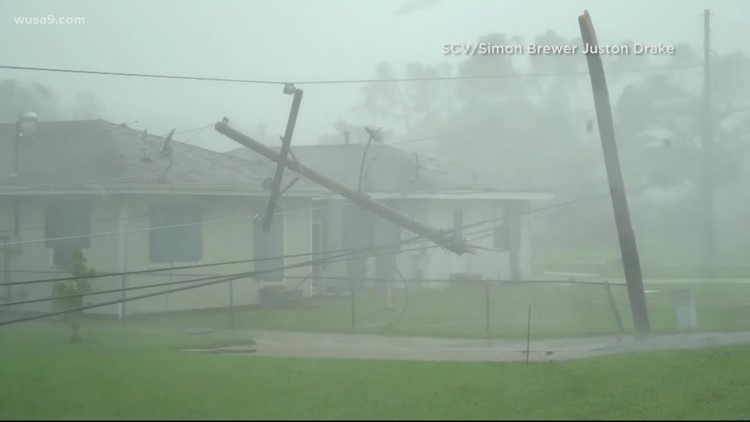WASHINGTON — Let's face it. No one wants to breathe polluted air. Cleaner air has proven to have many benefits, including better lung health and less allergy and asthma symptoms.
Over the last 40 years air pollution levels have dropped significantly over Europe and the United States. In D.C., during the pandemic, officials say ozone levels dropped significantly.
However, scientists have found a catch: better air quality is also leading to an increase in tropical cyclone activity.
A new National Oceanic and Atmospheric Administration study linked cleaner air to more tropical cyclones in the North Atlantic Ocean.
In a 40 year analysis, researchers found that while air pollution was lower in Europe and the U.S. hurricane activity was higher. They also found that air pollution was higher in South and East Asia, where tropical cyclone activity has decreased over the years.
“Air pollution is a big environmental risk to human health and we have made great strides in reducing health risks by reducing particulate air pollution,” said Hiroyuki Murakami, a physical scientist at NOAA’s Geophysical Fluid Dynamics Laboratory and study author. “But reducing air pollution does not always decrease the risk of hazards from tropical cyclones,” he said in a statement.
NOAA estimates a roughly 50 percent drop in air pollution in the U.S. from 1980 to 2020. Particulate pollution reflects sunlight, which leads to a cooling effect. But without those aerosols to reflect the sunlight back, you get a warming effect.
The Connection
So what's the connection? The short answer is less air pollution and less wind shear is creating a better environment for storms.
Murakami said without significant amounts of particulate pollution to reflect sunlight, the ocean absorbs more heat and warms faster. The study found that
the drop in air pollution has led to a warming over the tropical Atlantic Ocean, which contributes to more frequent tropical cyclones.
Murakami said a warming Atlantic Ocean had been a key ingredient to a 33-percent increase in the number of tropical cyclones from 1980 to 2020.
During the same time period, Murakami noted a 40-percent increase in air pollution over South and East Asia, which has led to a 14-percent decrease in tropical cyclones in the Pacific Ocean. Murakami said other factors include natural variability and increased greenhouse gases.
Losing a buffer to storms
Wind shear is something that hurricanes and tropical storms don't like. That's because wind shear can disrupt the tropical systems or prevent them from forming or getting stronger. Researchers found that wind shear is decreasing, so there won't be much in the way to slow down tropical cyclones.
Murakami said the bump in temperatures has also been causing the jet stream to to move further north. It's that movement that's lead to less wind shear. The jet stream is a river of air in the atmosphere that separates the cooler air to the north and the warmer air to the south.
The Future of Air Pollution and Hurricanes
“This study indicates that decreasing air pollution leads to an increased risk of tropical cyclones, which is happening in the North Atlantic, and could also happen, if air pollution is rapidly reduced, in Asia,” said Murakami. “The ironic result suggests the necessity of careful policy decision-making in the future that considers the pros and cons of the multiple impacts.”
Murakami projects that in the next decades human-caused particulate air pollution will remain stable in the North Atlantic and that increased greenhouse gases will become a more significant influence on tropical cyclones. His projection is for fewer numbers of tropical cyclones, but those that occur are likely to be more intense.



